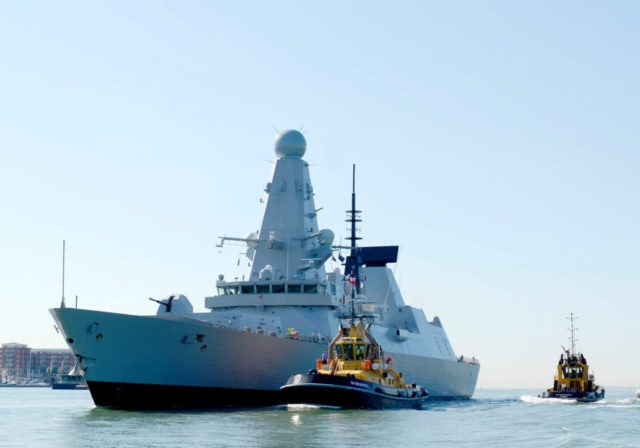Britain’s border security is “clearly under-resourced”, MPs have found, leaving the country’s front door wide open to people smugglers. They have recommended that it be supplemented with warships drafted in to provide security for the country’s small ports to guard against people smugglers.
Britain currently has just three border patrol ships protecting her 7,000 mile long coastline, a report by the Home Affairs Select Committee has found, while the fourth boat in the fleet is currently serving in the Mediterranean.
A further four boats have been promised, but will not be available until next year. In the meantime, Britain’s small ports and harbours continue to be open doors for people smuggling operations, allowing an unknown number of migrants to walk into Britain unchecked.
By comparison, Italy has 600 boats patrolling a coastline of less than half the length.
The report comes as Rob Whiteman, former chief executive of the UK Border Agency, admitted that Britain currently has as many as one million illegal immigrants living and working within her shores, the vast majority of whom will never be deported.
Suggesting that the problem is now simply too big for the government to tackle, he told The Times: “The scale of illegal migration and illegal working is not nearly discussed as much as other issues around immigration. The government does not have the resources or political levers to deport hundreds of thousands of people.”
UKIP’s defence spokesman, Mike Hookem MEP, who has spent time investigating people trafficking into the UK said: “I’ve no doubt there are over a million people illegally living in the UK because people trafficking is a huge industry which has not been dealt with properly by either the EU or the UK.
“As we’ve heard today, we have insufficient naval resources to protect our coastline with MPs reporting the ‘worryingly low number of boats’ but this is not news: the Royal Navy would be in administration had it been a public company.”
So far this summer 18 Albanian migrants had to be rescued from a sinking dingy in the waters off the coast of Kent, and a further 17 Albanians were found on a catamaran in Chichester harbour, West Sussex. Three Iranians were also found in a dingy off the coast of Dover, but many more are thought to be successfully using the route, paying people smugglers thousands of pounds for a night crossing in a dingy.
The report noted: “Smaller ports are now being used by criminal gangs to move people between the Continent and the UK. UK Border Force has been given a key role in implementing strengthened coastal security measures but it is clearly under-resourced, with the number of Border Force vessels in operation worryingly low. Royal Navy vessels should be made available to Border Force to make up for shortfalls, where necessary.”
Mr. Hookem said: “Along with the violence in Calais as people try to get on board lorries crossing the channel, we also have increasing numbers of migrants crossing the channel and landing in smaller ports.
“By cutting numbers in border forces and their massive under funding of the military the UK government, along with the EU, has made people trafficking a very profitable and quite easy business. And when there are large numbers in the UK the government’s response is to roll over and declare an amnesty – so I can’t see anything changing in the near future.”
The committee chairman, Keith Vaz, has warned that the security failure presents a very real security threat, as terrorists are equally able to simply board a boat and land on British soil unchecked.
“Criminal gangs continue to exploit weaknesses in security at small ports in Britain to illegally transport migrants from the continent,” Mr. Vaz said.
“Despite maritime security being critical to an island nation, Border Force is operating worryingly low numbers of vessels to protect our borders. Royal Navy vessels must be used in our sea war against the traffickers.
“The appalling attacks in Paris demonstrated that terrorists are exploiting this crisis by using this human tragedy as a cloak to re-enter Europe. The EU external border must improve security, including deploying specialist equipment to fingerprint and check everyone against security databases. This is not happening. Terrorists do not see borders as barriers to their barbarism.”

COMMENTS
Please let us know if you're having issues with commenting.